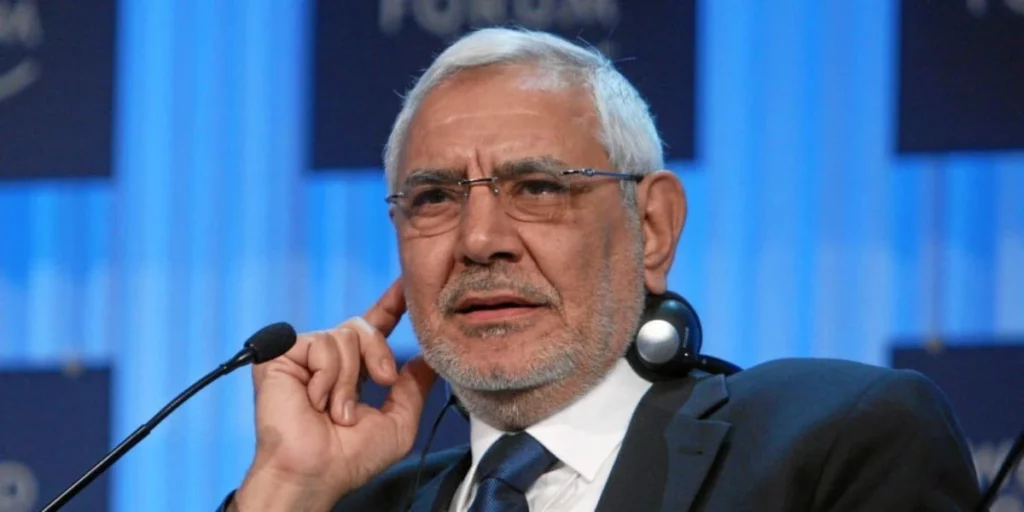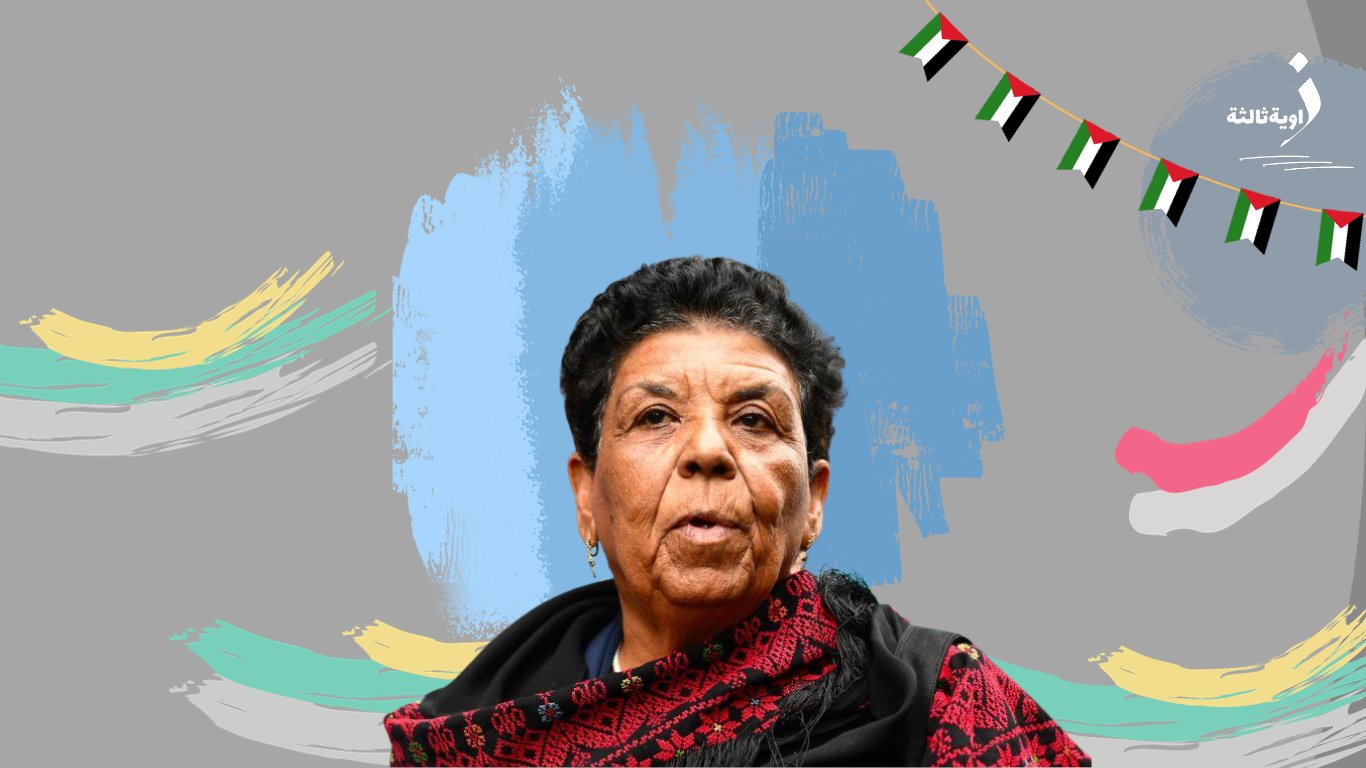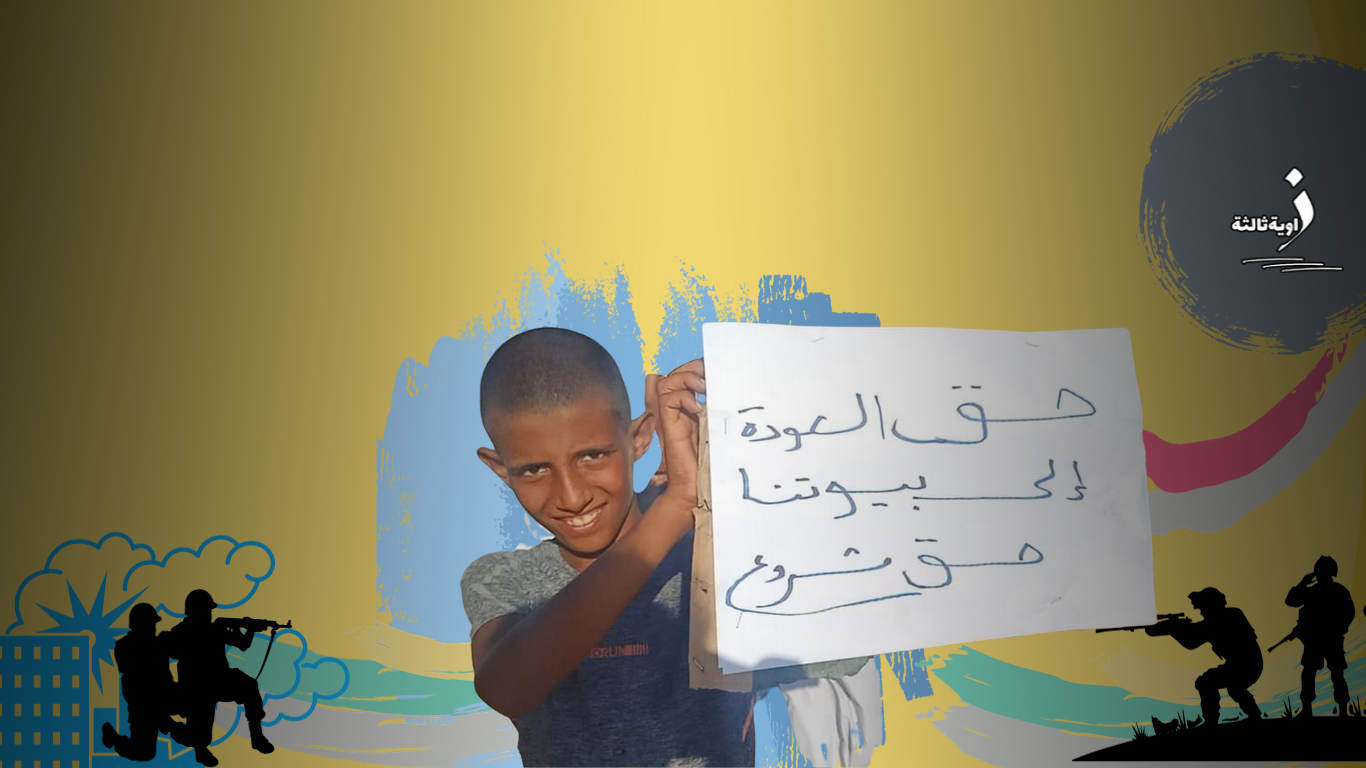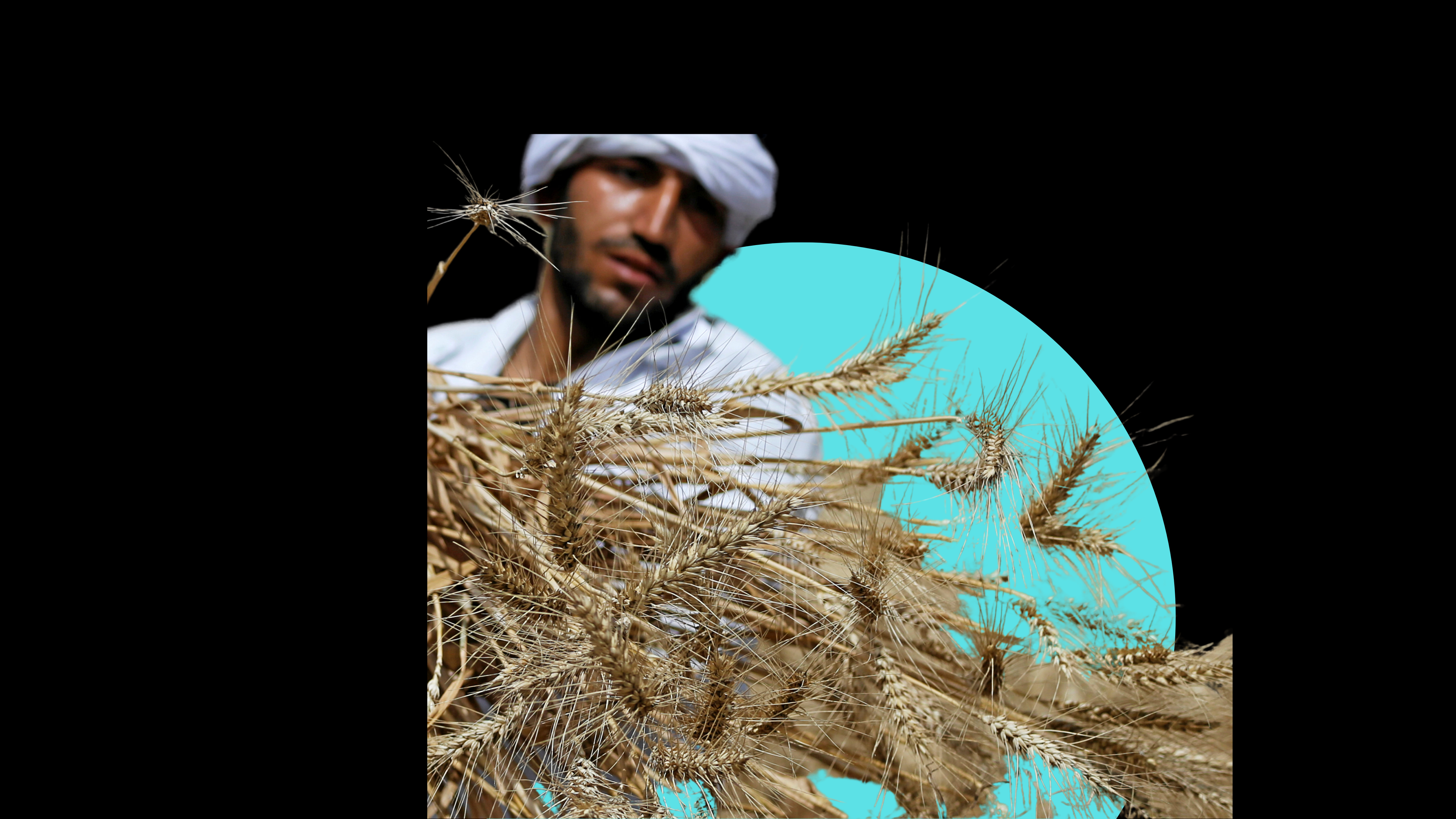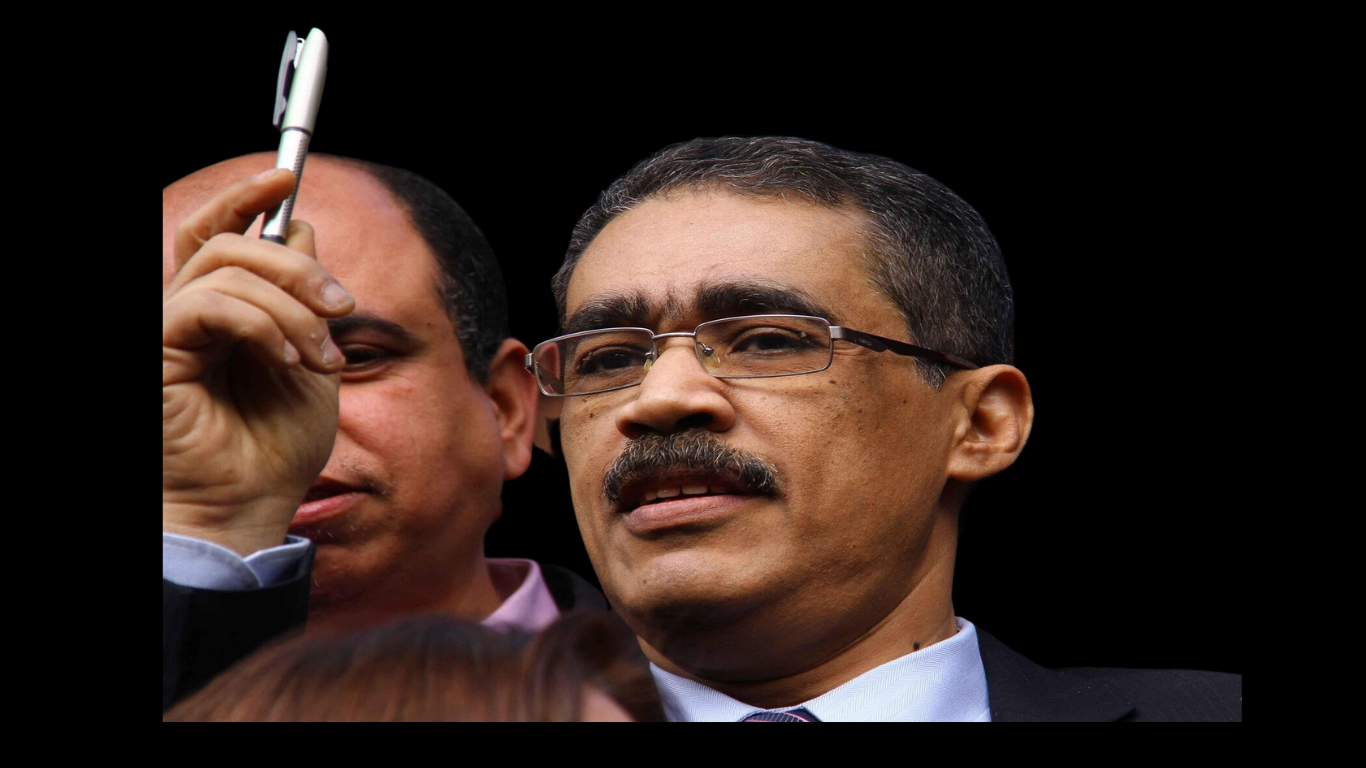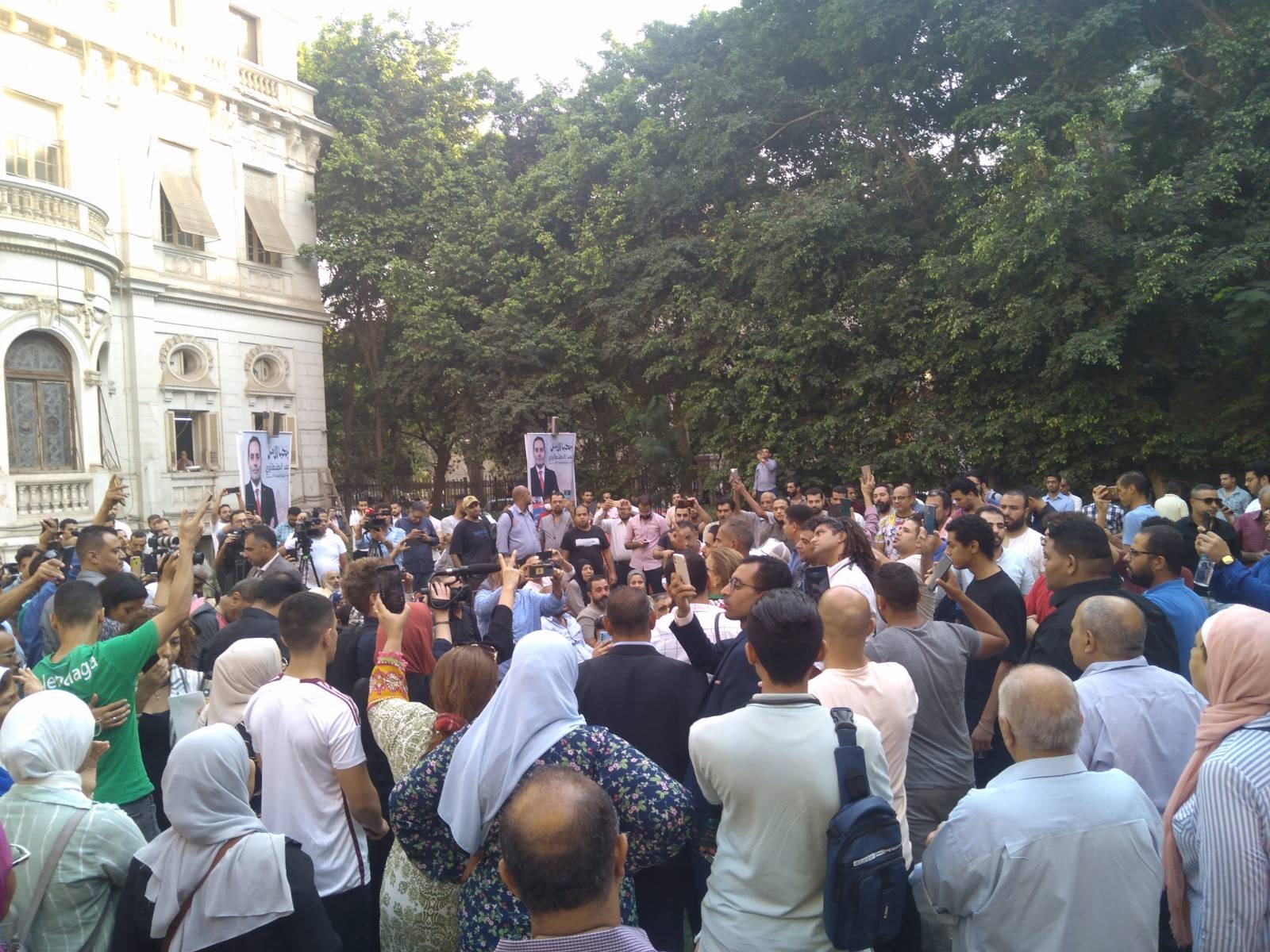“To live in the prison of Abu Zaabal ( just north-east of Cairo) is better for me than to live in a palace in London.” These were the last words spoken by the former presidential candidate and leader of the Strong Egypt Party, Dr. Abdel Moneim Aboul-Fotouh, during his interview with Al Jazeera in London. He had insisted that the interviewer be an Egyptian and a professional journalist with no political bias, as he believed that the media should remain unbiased, as he had told the interviewer at the time. The day after his return to Egypt, he was arrested, specifically on February 14, 2018, and has been in solitary confinement ever since.
Dr. Mohamed ElBaradei, a Nobel Peace Prize laureate, tweeted on “X”, “According to the United Nations rules for the treatment of prisoners, solitary confinement is an exceptional punitive measure and should not exceed 15 days.”
One of the members of Abdel Moneim Aboul-Fotouh’s defense team says, “In the past, the Mubarak regime used to suppress, but it tried to show respect for the laws. However, the current regime does not recognize the laws at all and considers them futile. It does not leave us any room to argue that the arrest of Dr. Abdel Moneim Aboul-Fotouh is an unlawful act and that his prolonged solitary confinement is in violation of the constitution, laws, and United Nations principles.”
Who is Abdel Moneim Aboul-Fotouh?
Abdel Moneim Aboul-Fotouh, 71 years old, is a former presidential candidate in Egypt who received over 4,065,239 votes from Egyptians. He is currently serving a 15-year prison sentence in solitary confinement at Badr Rehabilitation and Reformation Center after being convicted in Case No. 1781 / 2019 by the Supreme State Security Court. He was charged with spreading false news and inciting against state institutions.
Aboul-Fotouh was once a prominent figure within the Muslim Brotherhood in Egypt, but he later parted ways with the organization and ran for the presidency in 2011. He was one of the fiercest critics of the Muslim Brotherhood’s policies at the time, although he was accused by several Egyptian media outlets of being affiliated with them. He holds a Bachelor of Medicine from Kasr Al Ainy College and was denied employment due to his political activities. He was arrested during the infamous September 1981 arrests and later obtained a Master’s degree in Hospital Management from Helwan University.
Aboul-Fotouh was arrested in 1981 during the presidency of Anwar El-Sadat as part of the famous September arrests due to his opposition to the Camp David Accords. He was subsequently arrested again, tried in military courts, and sentenced to an additional five years in prison during the tenure of former Egyptian President Hosni Mubarak due to his affiliation with the Muslim Brotherhood and his political activities. During his time in prison, he obtained a law degree from Cairo University.
On February 8, 2018, Aboul-Fotouh traveled to the United Kingdom and Qatar and participated in programs for Al Jazeera Qatar and BBC Arabic. On February 14, 2018, his son posted a social media update stating that security forces had arrested his father and six members of the political bureau of the Strong Egypt Party inside their home in the Fifth Settlement, taking them to a security facility before releasing the other leaders and keeping Dr. Abdel Moneim Aboul-Fotouh in custody. On February 25, 2018, the Egyptian Prosecutor General Nabil Sadek decided to freeze the assets of Abdel Moneim Aboul-Fotouh, the leader of the Strong Egypt Party, and 15 others on charges of engaging in “terrorist activities.”
Many consider Abdel Moneim Aboul-Fotouh to be a moderate Islamist who believes in democracy. He consistently emphasizes the importance of social justice along with development and security plans. He also advocates for the military to stay out of political life and focus on protecting Egypt’s borders. He believes that the Muslim Brotherhood should distance itself from politics and transform into a purely advocacy group.
Illegal Detention
Lawyer Ahmed Abu al-Ala Maadi, representing the head of the “Strong Egypt” party, submitted a petition, with the reference number 49369 for the year 2023, to the Technical Office of the Prosecutor General. He stated that “his client, Abdel Moneim Aboul-Fotouh, must be released immediately due to the expiration of his detention, which has been ongoing for 11 months, specifically since October 5, 2022, in the case he is detained in.” He clarified that “the verdict issued against him in the second case, in which he was sentenced, has not been ratified. It is considered a state security crime under the state of emergency, and he should be released pending it, and the verdict is not counted or executed except after its ratification.”
Poor Health Conditions
Ahmed Abu al-Fotouh, the son of Abdel Moneim Aboul-Fotouh, stated that his father had written his will in his last message to the family. In a Facebook post, he accused individuals who “do not know the meaning of honor” of seeking revenge against his father and planning to kill him in cold blood, without naming these individuals. Abdel Moneim Aboul-Fotouh has suffered from repeated heart crises, among other illnesses, and the Egyptian authorities have consistently rejected his family’s and lawyer’s requests to transfer him to a hospital at their expense to provide him with the necessary medical care that is not available in his place of detention.
Dr. Abdel Moneim Aboul-Fotouh has suffered from six cardiac episodes during his periods of detention, and the lack of proper ventilation in his place of detention exacerbates these episodes. According to a report filed by the Egyptian Center for Economic and Social Rights and the Justice for Rights and Freedoms Center in 2019, “the repeated occurrence of these episodes is a very dangerous indicator of the possibility of him having a heart attack and coronary artery narrowing. Over time, this could lead to the death of parts of his heart muscle and failure in its function, necessitating urgent medical examinations and cardiac care. It is also essential to have someone present with him to administer aid in his confinement.” According to the same report, Dr. Abdel Moneim Aboul-Fotouh suffers from prostate enlargement, and he had been scheduled for surgery before his arrest in February 2018. Due to medical neglect, his prostate enlargement has significantly worsened, leading to severe congestion and negative effects on the kidneys and bladder, as well as difficulty with urination. He currently requires urgent surgical intervention to prevent further deterioration of his health. Additionally, he suffers from diabetes, which can lead to sudden spikes or drops in blood sugar levels, and during his detention, it is difficult to maintain the ideal sugar level due to the lack of proper nutrition in prison.
Punishing His Family
Dr. Abdel Moneim Aboul-Fotouh’s son was added to the same case with charges of joining a terrorist group after his father’s detention. Additionally, both father and son were included on terrorism lists in February 2018. Despite an appeal and the cancellation of this decision in February 2020, there has been no change in his son’s legal status. He continues to be listed as a person on those lists, which deprives him of political rights, prohibits him from conducting officially documented buying and selling transactions, prevents him from obtaining a passport, disqualifies him from government sector employment, freezes his bank accounts, and seizes his assets. His membership in unions and boards of companies, clubs, and any entities for public benefit has been suspended, among other consequences of being listed as a terrorist. Furthermore, he was re-listed as a terrorist once again in a new decision on January 23, 2021.
His other son has also been repeatedly prevented from traveling, preventing him from returning to his job abroad, which he had held since 2009. In 2019, he was later dismissed from his job in a private sector company in Egypt and was informed that the dismissal was “based on a security request.” If he applied for a job and was accepted, the job offer would later be withdrawn.
It has been a common practice in Egypt’s security apparatus to detain family members as a punishment for the political, human rights, or journalistic activities of one of their relatives. For instance, security forces arrested 12 members of the family of former MP Ahmed Tantawi, a prominent opposition figure and a potential presidential candidate in the upcoming elections. Similarly, security authorities arrested the father of journalist Ahmed Jamal Ziyada in an attempt to silence his voice, as reported by Human Rights Watch. You can find further details about the detention of family members in our report “Egypt’s Dirty War: Muffling Overseas Dissidents by Arresting Their Family Members.”
It’s worth noting that Egypt initiated a national political dialogue that authorities claimed aimed to formulate plans for the country’s future, including improving human rights conditions. President Abdel-Fattah el-Sisi announced this dialogue in April 2022 and addressed the opening session, urging participants to put forth significant effort to ensure the success of the national dialogue, emphasizing that differences in opinion should not harm the nation.
Seven human rights organizations described the past decade of Egypt’s rule as the worst decade for human rights in the country. They mentioned that ten years ago, President Abdel-Fattah el-Sisi, who was the Defense Minister at the time, asked Egyptian citizens in a public speech to grant him authorization to confront potential violence and terrorism. However, this authorization evolved into a mandate for repression, leading to the Rabaa massacre in August 2013, where over 800 protesters were killed by security forces. This authorization speech allowed authorities to use security pretexts to strengthen their grip, silence independent media and civil society, and eliminate all forms of opposition, including peaceful opposition, whether Islamist or secular.

